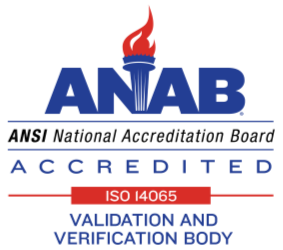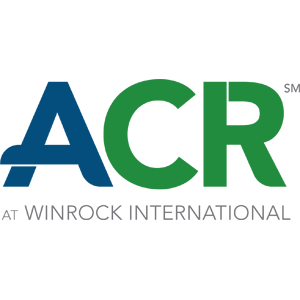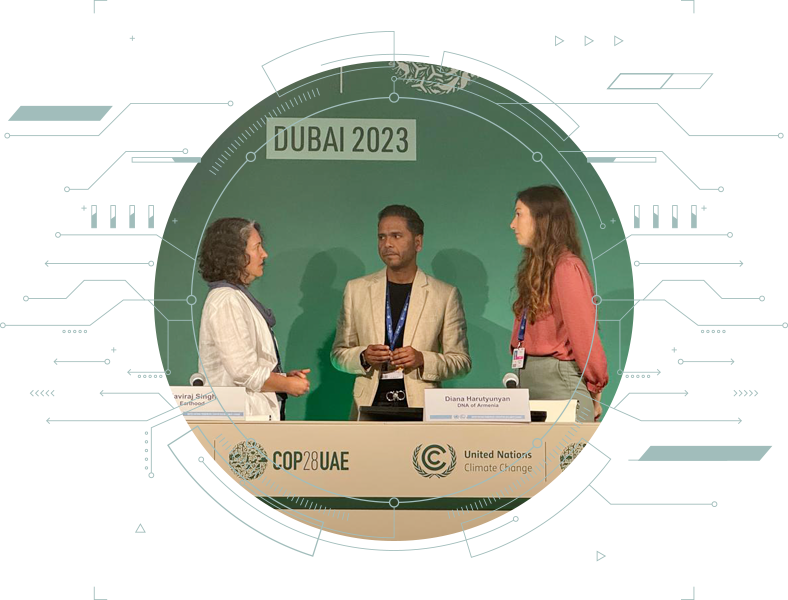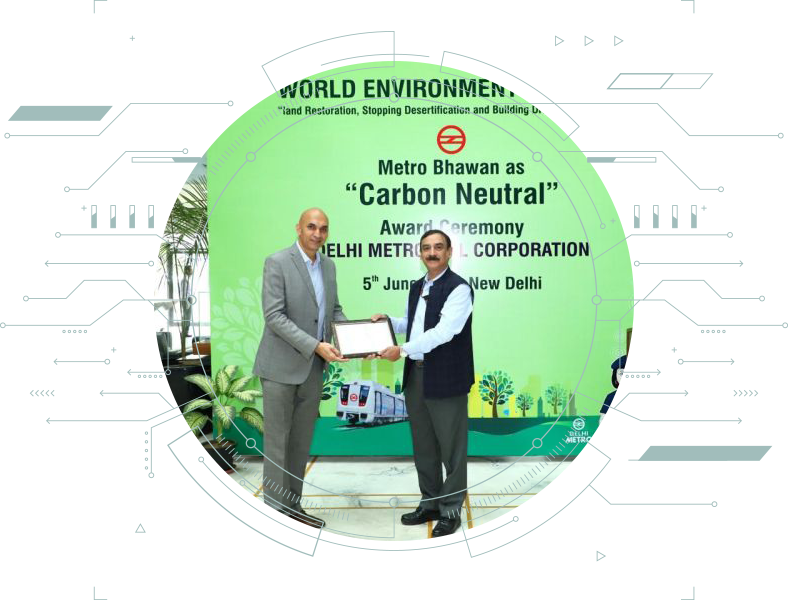
What is GHG
Verification?
GHG or Greenhouse Gas verification is an independent, systematic process of evaluating and confirming the reliability and accuracy of an organization’s reported greenhouse gas emissions. The process is essential for allowing transparency, credibility, as well as accountability in the measurement and reporting of GHG emissions, which are critical components in the fight against climate change.
GHG Verification Process

Defining Scope and Boundaries
The initial step of the GHG verification process is to determine the scope of verification and the boundaries of the GHG emissions inventory. This means the identification of all the emissions sources within your organizational and operational boundaries. Create clear guidelines for what will be monitored and reported, which include direct emissions from privately owned or controlled sources, indirect emissions through the production of purchased electricity, as well as other indirect emissions within the value chain. A clear scope definition will ensure complete and accurate reporting of emissions.

Choosing Your Verification Approach and Level
Find the appropriate verification approach and level on the basis of your specific needs and objectives. There are two levels of verification, limited assurance and reasonable assurance. Limited assurance offers moderate confidence in the reported data, making it suitable for internal reporting and stakeholder communication. Reasonable assurance offers higher confidence, often needed for public reporting and regulatory compliance. Find the level that aligns with your objectives, alongside stakeholder expectations.

Preparing Your Verification Plan and Documentation
The development of a detailed plan of verification, that outlines procedures, timelines, and resources is a must in the verification process. Collect all the necessary documentation, including the GHG inventory, methods of data collection, emission factors as well as calculation methodologies. All documentation should ideally be organized, complete, and readily accessible for the facilitation of a smooth verification process. A well-prepared plan and thorough documentation are fundamental for successful verification.

Conduction of your Verification Activities and Review
Perform the verification tasks in accordance with your verification strategy. This may include reviewing data collection techniques, emissions calculations, as well as supporting documentation. Audits and site visits can be carried out to examine the operational practices and to confirm data at the very point of origin. In this stage, verifiers will find any data gaps, discrepancies, or methodological problems that require attention. An exhaustive review will confirm the accuracy and validity of the GHG emission information.

Reporting the Findings and Recommendations
After the completion of the verification activities, preparing a verification report which summarizes the findings is important. It will highlight any discrepancies or sections of improvement during the verification process. It provides a statement of assurance indicating confidence level in the reported data. The verification report is a critical document that demonstrates the transparency and accountability of the GHG emissions reporting.

Implementing Verification Actions and Improvements
Based on the conclusions and recommendations in the verification report, make the necessary changes to resolve any issues identified and thereby enhance your reporting process. Implement corrective measures to fix the errors and improve the accuracy of data. Continuous improvement of your GHG inventory reporting and management practices will not only increase your company's credibility but also help in more efficient climate action.

Why is GHG Verification
important for an
organization?
Ensures Compliance
Enhances Credibility
Supports Sustainability Goals
Improves Stakeholder Confidence
Recognizes Reduction Opportunities
Risk Management
What are the Principles of
GHG Verfication ?

Relevance
Completeness
Consistency
Transparency
Accuracy
Are Companies Required to do GHG Verification Reporting?
The requirement for companies to conduct GHG verification reporting varies depending on several factors including jurisdiction, industry, and specific regulatory frameworks. Here are some key considerations:
Regulatory Requirements
In many regions, governments have implemented regulations that mandate GHG emissions reporting and verification for certain industries. These regulations are often part of broader climate change policies aimed at reducing national and global greenhouse gas emissions. For instance, the European Union Emissions Trading System (EU ETS) and California's Cap-and-Trade Program require verified emissions reporting for participating companies.
Voluntary Programs
Even in the absence of mandatory regulations, many companies choose to participate in voluntary GHG reporting programs. These programs, such as the Carbon Disclosure Project (CDP) and the Global Reporting Initiative (GRI), encourage organizations to report their GHG emissions and often recommend or require third-party verification to enhance data credibility.
Industry Standards
Certain industries have established their own standards and guidelines for GHG reporting and verification. These industry-specific protocols ensure that emissions are measured and reported consistently, facilitating benchmarking and performance tracking. Companies in sectors such as energy, manufacturing, and transportation often adhere to these standards.
Corporate Sustainability Initiatives
Companies committed to sustainability and corporate social responsibility (CSR) frequently undertake GHG verification to demonstrate their environmental stewardship. Verified GHG data supports sustainability initiatives, enhances corporate reputation, and meets the growing demand for transparency from stakeholders, including investors, customers, and the public.
Financial and Market Benefits
Verified GHG emissions data can also provide financial and market advantages. It helps companies identify cost-saving opportunities through emissions reductions, qualify for green financing, and meet the environmental criteria of certain investors and partners. In some markets, verified GHG data is essential for participating in carbon trading schemes and obtaining emissions allowances.
Legal and Liability Considerations
Accurate and verified GHG reporting can help companies mitigate legal and liability risks. It ensures compliance with environmental laws and regulations, reduces the risk of penalties and fines, and provides a defensible record in case of environmental claims or disputes.
Why Choose Us?
Earthood's team comprises seasoned professionals with extensive experience in GHG verification across a wide range of industries, ensuring your verification is handled with the utmost proficiency.
We adhere to internationally recognized standards and methodologies, ensuring our verification process meets global best practices and regulatory requirements.
Understanding that each organization is unique, we offer customized verification solutions tailored to meet your specific needs and objectives, ensuring optimal outcomes.
From initial assessment to final verification, we provide end-to-end support, guiding you through each step of the process with clarity and efficiency.
We believe in open and transparent communication, providing regular updates and insights throughout the verification process, and ensuring you're always informed.
With a focus on data integrity, we utilize secure processes to manage your information, guaranteeing confidentiality and protection of your data.
We understand the importance of stakeholder trust and offer strategies to effectively communicate your GHG verification efforts, enhancing stakeholder confidence.
Our GHG verification services can help elevate your market position by demonstrating your commitment to sustainability and environmental responsibility.
We offer cost-effective verification solutions that not only ensure compliance but also identify opportunities for operational efficiencies and cost savings.
Our forward-thinking approach means we stay ahead of regulatory changes and market trends, preparing your organization for future environmental challenges and opportunities.
Meet the Earthood Carbon
Auditing Professionals
At the heart of every impactful carbon audit is a team of dedicated professionals. Earthood takes pride in our cadre of seasoned experts, each bringing a wealth of knowledge, precision, and passion to the forefront of your sustainability efforts.
Clients
FAQ
- Data Collection: Gathering emissions data from the organization.
- Assessment: Reviewing the data against regulatory standards.
- Reporting: Giving a verification report outlining recommendations and findings.


































































